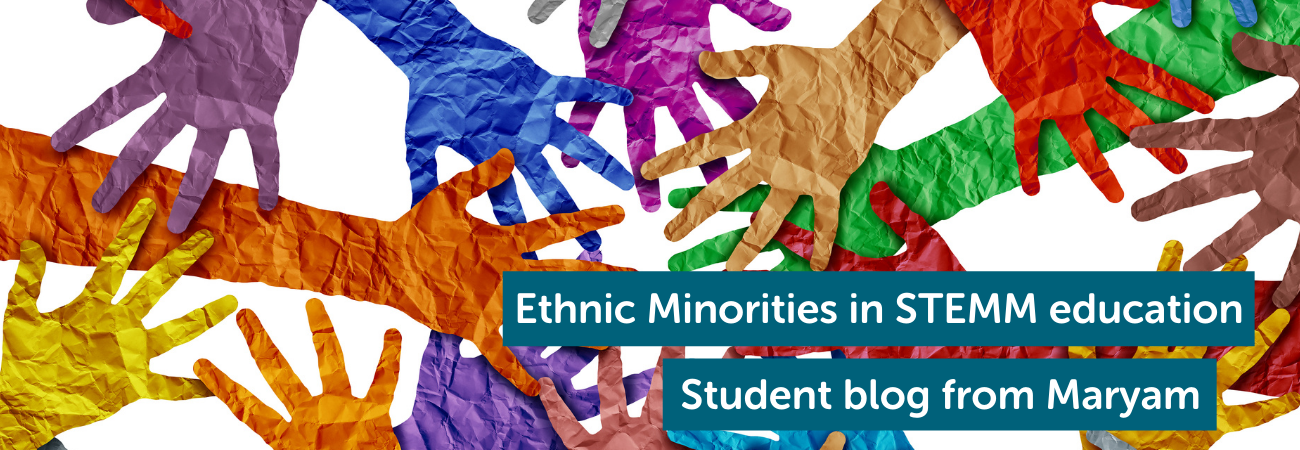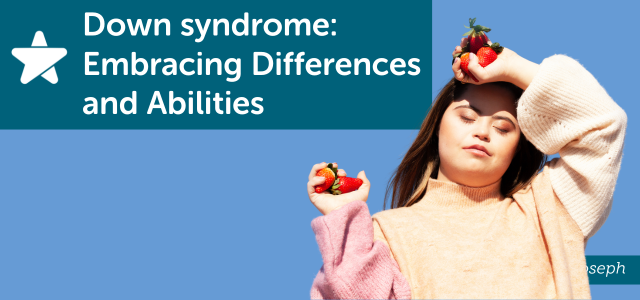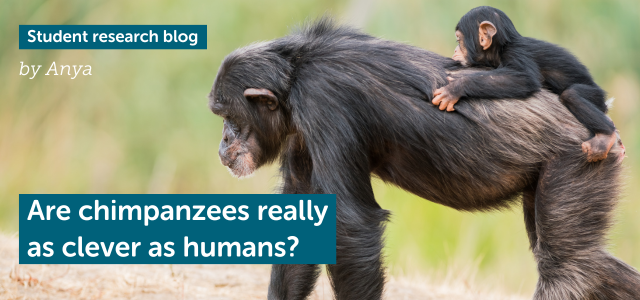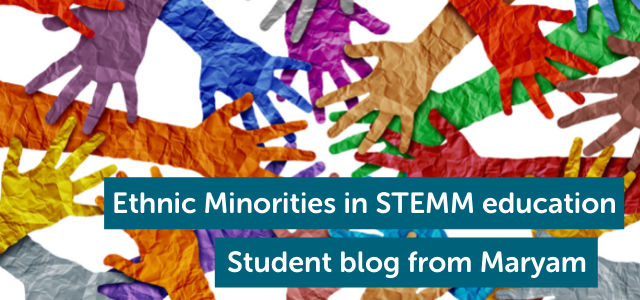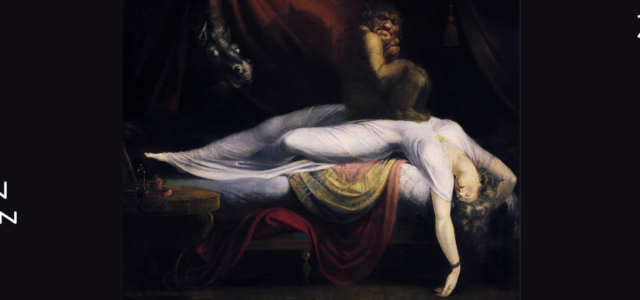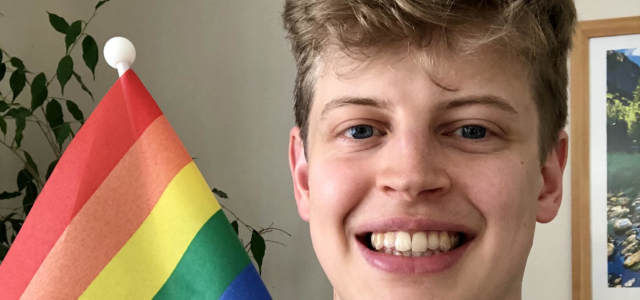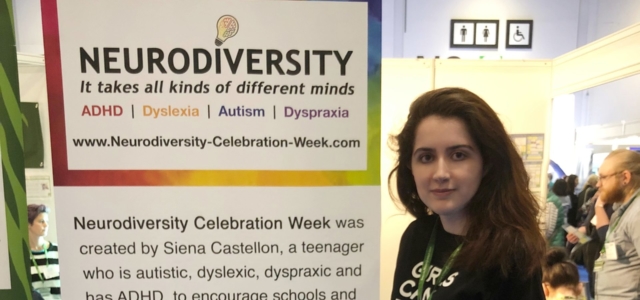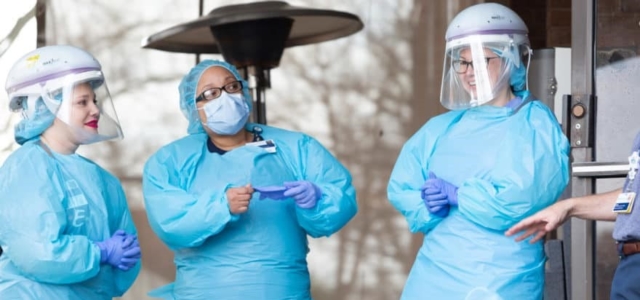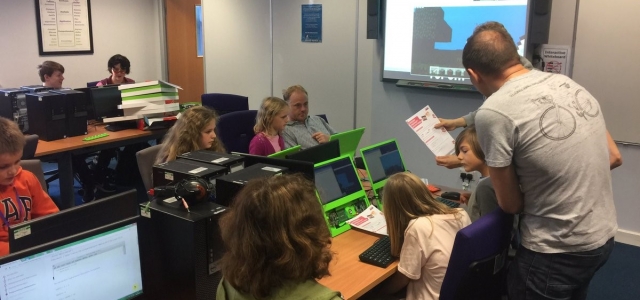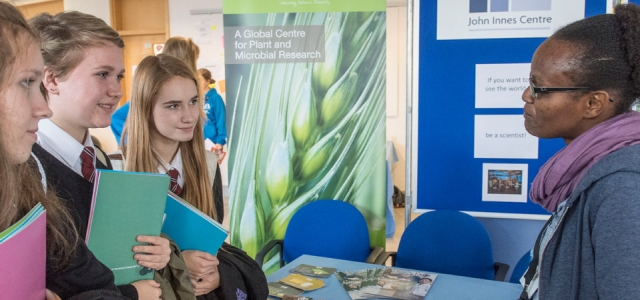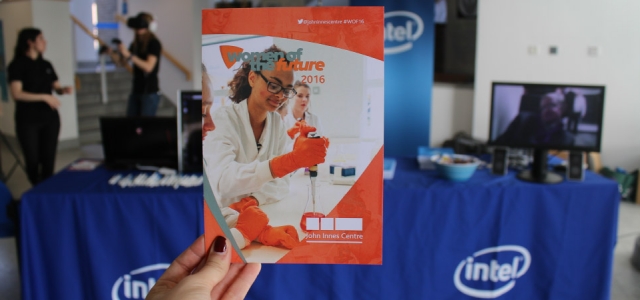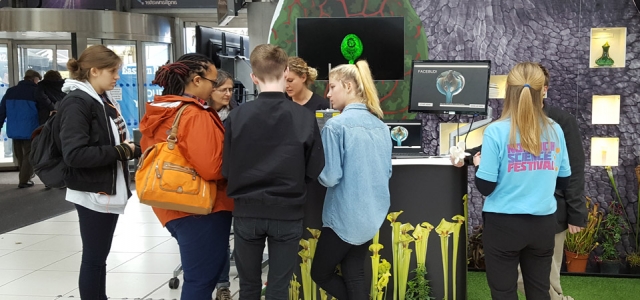Read on to find out more about Maryam’s exploration of this important issue of diversity in STEMM education…
As an ethnic minority myself, I am always interested in issues related to race, culture, and religion. Since registering to work towards a Youth STEMM Award, I have been able to conduct lots of research in topics I have an interest in as well as lots of topics that I never got to explore before.
Throughout 2020, many different protests went on around the world. From the BLM protests in America to the Hong Kong pro-democracy movements, young people have been at the forefront of lots of protests. The UK has many flaws in its systems that may make ethnic minorities feel different. One of these systems is education. As a full-time student myself, I know what being in education feels like as an ethnic minority.
At the start of my research project, I only really had one question: how did the education system treat ethnic minorities? As I carried on researching, I kept finding new information that made me ask more questions. I found out more about the huge difference between ethnic minorities themselves. Some ethnic minority groups do better in education compared to other groups. Gender also had a huge role to play too, with women generally doing better in education than men but getting fewer job opportunities. I researched levels of education from GCSE to after university graduation and employment. During each stage of education, so much information and statistics were given that made me question more. Also, I highlighted what needs to happen for there to be fairness with all students that go through the education system in the UK.
Within my research project, I also investigated universities and their role to play in education. I noticed that ethnic minorities were getting into universities, however, many struggled to make it to top Russell group universities. For example, Queen’s University Belfast reported the lowest amounts of ethnic minorities in the UK. However, universities have increased their ethnic minorities population with 23.6% of Oxford University students being admitted considered BAME in 2020. Nevertheless, there is still a lot to do when creating a fair admission process for all students; I also reviewed what I think needs to happen to improve this process for ethnic minorities.
Also, I investigated the NHS as it is the most diverse in the public sector and has been applauded for this title for a long time. Nearly a quarter of the 1.3 million people in the NHS are considered ethnic minority. Since the days of the wind-rush generation, people came from the Caribbean to East Asia to contribute to the NHS. Whenever the NHS was short staffed, ethnic minorities would come in to help in multitude. One of these people is Dr Kehinde Oyedele who arrived in the UK from Nigeria in 2006 and has worked in the NHS for around than 15 years. I asked Dr. Kehinde about her opinions on diversity within the NHS, the treatment of ethnic minorities in the NHS as well as her experiences which I included in my research project.
The most interesting part of my project was finding out information that I didn’t know before and it was fascinating to interview people and ask people about their views and opinions on issues and their solutions to problems in the education system. I would love to do other projects in the future about social issues in our society.

